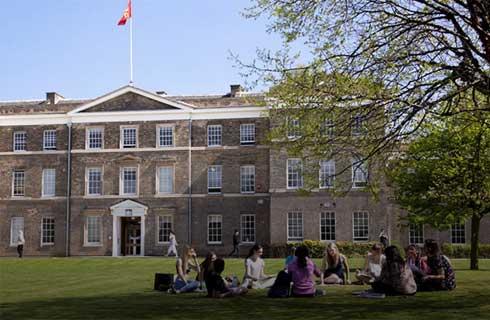PGDE Secondary Education - Technological Education

学历文凭
Graduate Diploma

专业院系
Strathclyde Institute of Education

开学时间

课程时长

课程学费

国际学生入学条件
An ordinary degree, or international equivalent.
Degree must include:
20 SCQF credits from at least one of the following subjects:
mechanical, electrical or electronic engineering/sciences
mechatronics
architecture
construction technology
building services
40 SCQF credits from at least one of the following subjects:
computer-aided design
graphic design
computer-aided design manufacture
industrial design
IELTS - 6.5 overall (no individual band less than 5.5)
TOEFL ibt - 80 overall, with the following minimum scores in each component-(Listening- 17, Reading- 18, Speaking- 20, Writing- 18)
IDP—雅思考试联合主办方

雅思考试总分
6.5
了解更多
雅思考试指南
- 雅思总分:6.5
- 托福网考总分:80
- 托福笔试总分:160
- 其他语言考试:PTE - 60 overall, with a minimum of 59 in each component
CRICOS代码: 6X90
申请截止日期: 请与IDP顾问联系以获取详细信息。
课程简介
相关申请
 预科
预科 奖学金
奖学金 实习机会
实习机会 在校学习
在校学习 跨境学习
跨境学习 校园授课-线上开始
校园授课-线上开始 在线/远程学习
在线/远程学习
学校排名

世界排名401
数据源:泰晤士高等教育世界大学排名
关于思克莱德大学

斯特拉思克莱德大学是一所国际领先的科技大学,位于英国最大城市之一格拉斯哥的市中心。这所屡获殊荣的大学成立于 1796 年,是一个 ''有用学习的场所'',拥有来自 140 多个国家的约 30000 名学生。该大学提供灵活、创新的学习方式,并通过世界一流的研究和教学提供卓越的学术成果。斯特拉思克莱德大学的许多课程都包括产业实习机会,帮助毕业生在学习之余适应瞬息万变、竞争激烈的环境。格拉斯哥是一座充满活力和生机的城市,到处都是咖啡馆、餐馆、酒吧、绿地、现场音乐、艺术和文化。作为经济和商业中心,格拉斯哥还为实习、就业和人际交往提供了良好的前景。格拉斯哥是重要的国际商业中心,也是英国排名前十的数字科技城市。学生可以期待卓越的教学水平、世界一流的研究机会以及行业联系和业务联系,确保学生为毕业后的理想职业做好有效准备。
本校相关课程

MEng海军建筑与高性能船用车辆
学历文凭
Undergraduate Masters
开学日期
课程费用总额


工程学与海洋工程学硕士
学历文凭
Undergraduate Masters
开学日期
课程费用总额


工学海军建筑与海洋工程
学历文凭
Undergraduate Masters
开学日期
课程费用总额


机械工程与材料工程学硕士
学历文凭
Undergraduate Masters
开学日期
课程费用总额


机械工程与财务管理学
学历文凭
Undergraduate Masters
开学日期
课程费用总额


机械工程与航空工程学
学历文凭
Undergraduate Masters
开学日期
课程费用总额

其他相关课程

文学硕士-法语
 奥克兰大学
奥克兰大学学历文凭
Masters Degree (Research)
开学日期
课程费用总额


法语学士(荣誉)学士学位
 华威大学
华威大学泰晤士高等教育世界大学排名:106
学历文凭
Bachelor Degree
开学日期
课程费用总额


荣誉文学士学位
 诺丁汉大学
诺丁汉大学泰晤士高等教育世界大学排名:130
学历文凭
Bachelor Degree with Honours
开学日期
课程费用总额


传播/艺术学士-英语
 昆士兰大学
昆士兰大学泰晤士高等教育世界大学排名:70
学历文凭
Dual Degree
开学日期
课程费用总额


文学硕士(荣誉学位)拉丁语和俄语
 圣安德鲁斯大学
圣安德鲁斯大学泰晤士高等教育世界大学排名:193
学历文凭
Undergraduate Masters
开学日期
课程费用总额


法文和意大利文学学士(荣誉)学位
 卡迪夫大学
卡迪夫大学泰晤士高等教育世界大学排名:190
学历文凭
Bachelor Degree with Honours
开学日期
课程费用总额


























